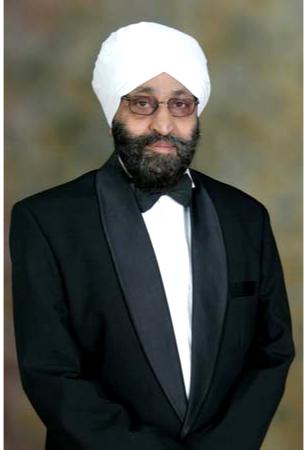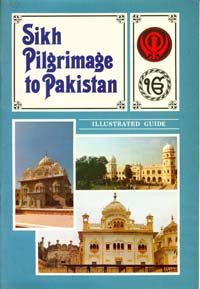Anup Singh Choudry
Anup Singh Choudry is an Ugandan born Sikh of Punjabi ancestry. With his appointement as a Justice of the High Court of Uganda, he has now added the title of Judge/Justice to his credits as a lawyer, auditor, businessman and author of several books, (his Sikh Pilgrimage to Pakistan is his best known book among Sikhs). After being schooled in Uganda he traveled to England to study at the University of London and the University of Cambridge. After qualifying as a Barrister he practiced law in England for 20 years until 2000 when he practiced as an auditor in quality control.
A Return to Uganda
Mr. Choudry, who was born in 1950 in Uganda has come full circle now by returning to Uganda and its civil service. His grandfather Hari Singh had migrated from Rawalpindi to Uganda in the early 1900’s serving in the then Crown Colony's civil service system. His late father Tarlok Singh had also served in Uganda's civil service, retiring shortly before 1972 when Idi Amin, the Commander of Uganda's Army > coupe leader > Dictator turned President and finally CBE 'Conqueror of the British Empire' seized the properties and businesses of all the country's Asians and European citizens and forced around 30,000 Asians holding British Passports to flee to Britain.
In 2004 Anup Singh Choudry was nominated for appointment as a Judge of the Uganda High Court by Uganda’s Judicial Service Commission being approved by the Ugandan parliament last month.
2nd May, 2008
Justice Anup Singh Choudry was today sworn in as the first Sikh High Court judge in Uganda in a ceremony that took place at the State House Entebbe, before the President of Uganda, His Excellency Yoweri Museweni and the Chief Justice of Uganda Bejamin Odoki. He is believed to be the first non African in the Ugandan judiciary and the only turbaned Sikh judge in all of East Africa.
Family
Justice Choudry is married with 3 children who were all born in England. His late father and his mother, Mrs. Narinder Kaur Chowdhary, who was also born in Uganda, migrated permanently with the rest of the family to England three years after her son, as a result of Idi Amin Dada's attemps to turn 'his' country into an ethinically pure kingdom, for apparently only the members of his own tribe.
She and her late husband have always been dedicated, practising Sikhs who have made every effort to bring up their family in the old Sikh traditions. In a recent interview with the BBC she said the following:
"My Sikh background was very important in forming my concept of respect. I respected my parents and my elders but these days we can't be sure whether our children will respect us or not."
"My own six children respect me - now I am disabled they come and help me, if it weren't for them I wouldn't be able to do anything. For me respect is when children do things for their elders, they want to respect them. But these days I don't think there is any respect in this country."
Speaking on Respect
Mr Choudry said the following in a recent interview:
" In any decent society or civilised society we all have the same values as human beings and our values have a base in our spiritual values. At the moment society is looking to its social fabric to give it values and forgetting the spiritual base. And that is where we are losing respect as we would define it in the previous generations."
"In my generation I was taught to respect elders, neighbours, the authorities and teachers. The moment that discipline breaks down what happens is a loss of respect for teachers, for your parents, your religion and the law."
Justice Choudry said he was delighted to be appointed to the bench and added that he would serve Uganda with the same vigour, diligence and dedication as had his late father Tarlok Singh and late grandfather Hari Singh.
The new Justice was one of the delegates at the meeting in Lahore last year in connection with the setting up of Baba Nanak University at Nanakana Sahib in Pakistan where he eloquently put forward his case for allocation of 2500 acres of land for the University campus in a proposal that was successfully approved by the Pakistani authorities.
Publications
- Sikh Pilgrimage to Pakistan
- Flight to Freedom
- Lawyers Office Directory A-Z Edited by Anup Singh Choudry and published in 1989. It was the first A-Z legal directory published in the UK. ISBN 0 9513894 0 8
See also
- ICC agrees on a mechanism for prosecution of crimes of aggression
- Sikh Pilgrimage to Pakistan
- Baba Nanak University
- History, Science and Sikhism
- Guru Nanak's Philosophy
- See Wikipedia article on Anup Singh Choudry for more information


